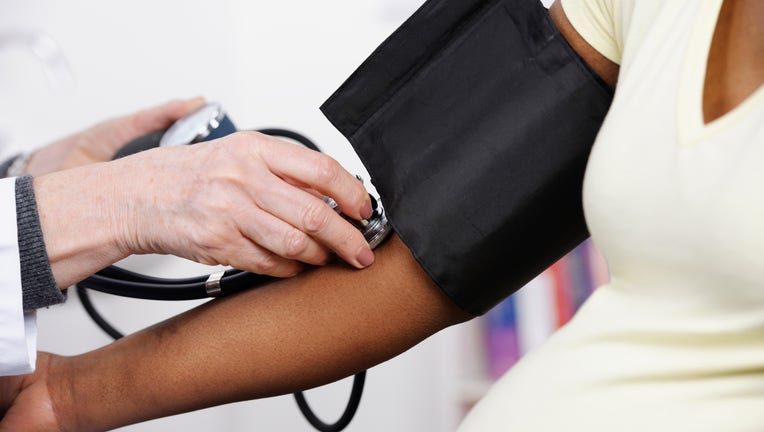Blood
US task force calls for increasing blood pressure screenings during pregnancy
A close-up of a pregnant Black woman having her blood pressure monitored.
The recommendation, which was published in the Journal of the American Medical Association, particularly includes those who don’t have a known history of high blood pressure or a diagnosis of hypertensive disorder of pregnancy.
Hypertension is when the pressure in your blood vessels is too high, and is common but can be serious if not treated – especially for those who are pregnant.
- Gestational hypertension, which is diagnosed when high blood pressure occurs only during pregnancy
- Preeclampsia, which is when high blood pressure suddenly develops in someone who previously had normal blood pressure
- Eclampsia, which is when someone with preeclampsia develops seizures and is a medical emergency
RELATED: US employers expect to see biggest jump in healthcare costs in a decade in 2024
“Pregnant people can be confident that (taking blood pressure readings) is the best evidence-based approach to screening for multiple hypertensive disorders of pregnancy, ultimately helping identify and prevent serious health issues,” Dr. Wanda Nicholson, vice chair of the Task Force, told FOX Television Stations.
The task force is hoping this recommendation highlights ways to improve health outcomes for people who are at higher risk of hypertensive disorders of pregnancy, such a Black, Native American, and Alaska Native patients, Nicholson said.
Nicholson noted that this is not due to differences in biology, but rather because of social inequities that come from disparities in access to care, as well as disparities in living conditions, such as education, nutrition, and income.
RELATED: RSV vaccine recommended for pregnant women, CDC says
The task force is an independent, volunteer group of 16 national experts in various medicinal fields and is not associated with the U.S. government.

